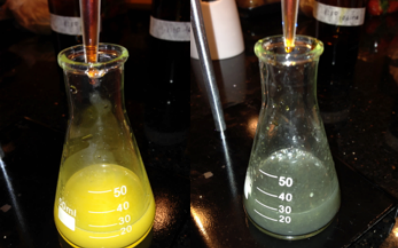Vitamin C in Fruits: Does Organic Make a Difference?
(1) Sewickley Academy, Pittsburgh, Pennsylvania
https://doi.org/10.59720/15-010
Vitamin C is an important compound that allows many organisms to function and live. However, there is controversy over whether organic fruits have more vitamin C than their non-organic counterparts. The purpose of this study was to evaluate whether organic fruits have more ascorbic acid than their non-organic counterparts. This analysis tested five fruits: oranges, lemons, grapefruit, strawberries, and kiwis. Using the oxidation-reduction reaction method, iodine titration was performed for each variety of organic and non- organic fruit, and the amount of ascorbic acid was calculated. The mean concentration of vitamin C in the organic variety was compared to the concentration in the non-organic variety for each fruit using a Student’s t-test. The data showed that ascorbic acid content varies widely among these five fruits. For oranges, organic varieties had more vitamin C than their conventional counterparts (p = 0.042). However, in the grapefruit, the organic and non-organic fruits had no significant difference in vitamin C levels (p = 0.63). For kiwis, lemons, and strawberries, the organic fruits had significantly less ascorbic acid than the non-organic ones (p = 0.021; p = 0.0034; p = 0.046, respectively). The results demonstrate that the organic status of a fruit does not guarantee that it has more vitamin C than its non-organic counterparts.